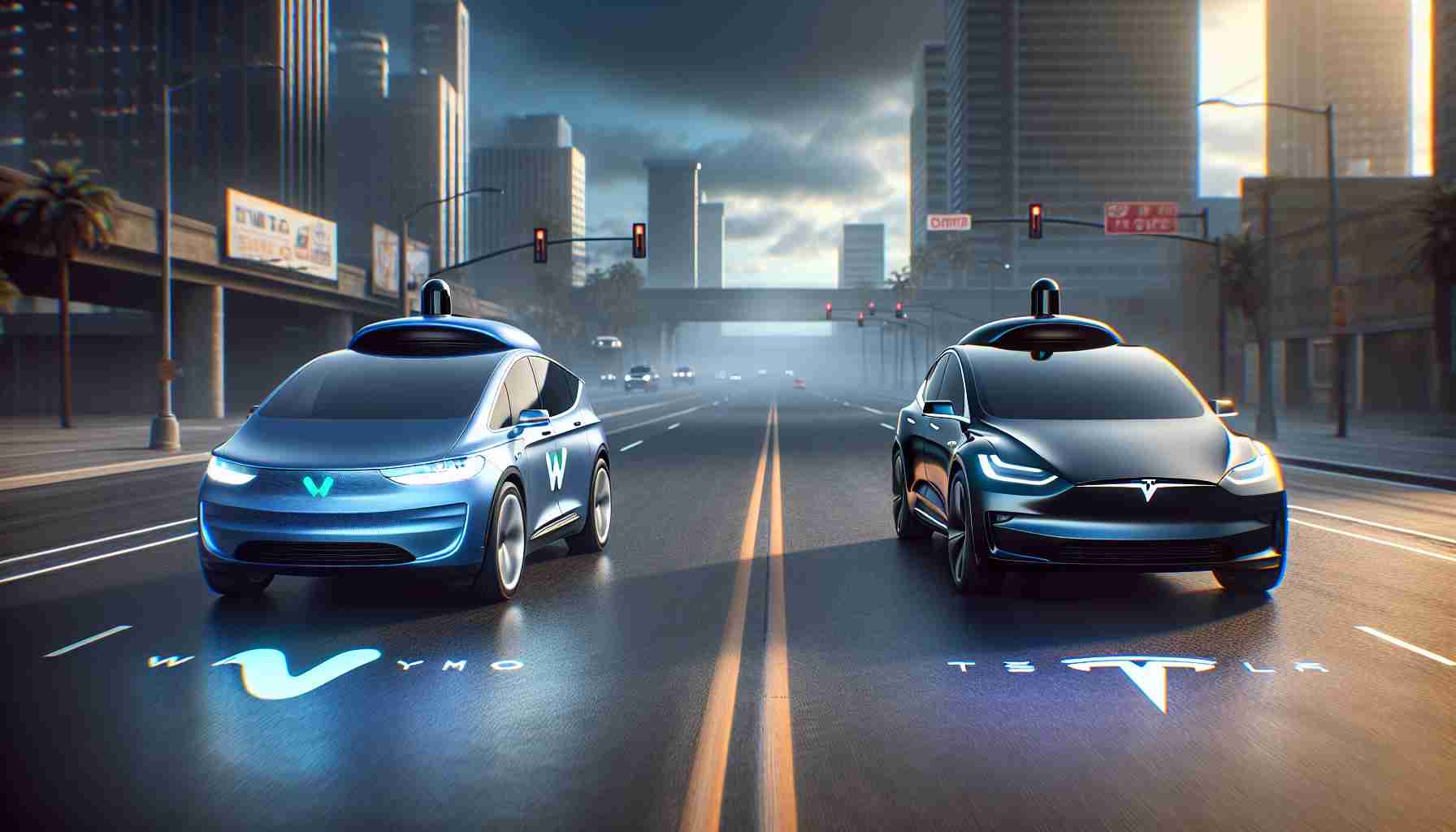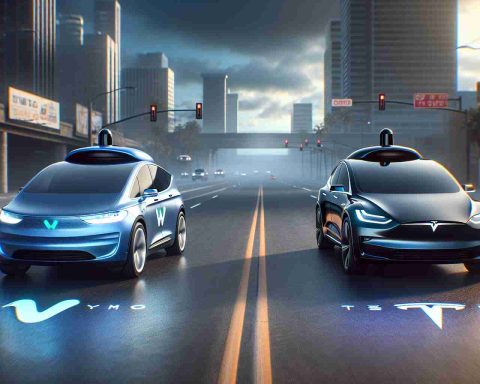- Waymo and Tesla are key players in the self-driving vehicle sector, each employing unique technological approaches.
- Waymo focuses on high-definition maps and LiDAR technology, while Tesla relies on neural networks and a vision-based system.
- Proving safety credentials through extensive real-world testing is essential for autonomous vehicle acceptance.
- Lack of transparency and confusing data make it challenging to evaluate vehicle safety adequately.
- The autonomous vehicle industry is projected to grow from $54 billion in 2023 to over $556 billion by 2030.
- Consumer readiness is increasing, with 65% of people open to using robotaxis.
- Challenges such as regulatory issues, cybersecurity, and real-world complexities remain significant.
In the electrifying race toward self-driving dominance, Waymo and Tesla emerge as the leading contenders, each vying to redefine our roads with cutting-edge technology. Waymo, the reigning robotaxi champion, has won accolades with its precision and advanced sensor strategy, using high-definition maps and LiDAR technology. Tesla, the daring disruptor, stakes its claim with a bold, camera-centric vision powered by neural networks.
But which visionary will truly deliver on the promise of safe, autonomous rides? The answer lies in the data, as these futuristic vehicles must prove their mettle through millions of miles of real-world testing. For a car to earn the title of “safer than a human,” it must transcend the average driver by achieving unprecedented safety standards—a feat requiring relentless dedication to refining autonomous capabilities.
The landscape is clouded by a lack of transparency, prompting consumers to navigate a maze of reports, metrics, and disengagement rates. Picture comparing two seemingly flawless vehicles: one experiencing crashes every 200 years, the other every three months. Navigating these details is crucial in discerning the safest ride.
Yet, the allure of driverless cars grows stronger. The autonomous vehicle market, valued at $54 billion in 2023, is predicted to soar to over $556 billion by 2030. And growing consumer confidence suggests a shift, with 65% now willing to hail a robotaxi.
The road ahead is fraught with challenges—regulatory hurdles, cybersecurity concerns, and real-world complexities await. But as Waymo and Tesla push the envelope, the allure of a safer, self-driving future captures our imagination. Stay tuned for more on this high-stakes journey toward autonomy!
Will Waymo or Tesla Win the Autonomous Vehicle Race? Find Out Now!
Key Questions and Answers
1. What are the main technological differences between Waymo and Tesla in their approach to self-driving cars?
Waymo and Tesla, while both frontrunners in the autonomous vehicle space, take distinct technological paths. Waymo primarily relies on a combination of high-definition maps and LiDAR technology, which uses light detection and ranging to create a detailed 3D image of the environment. This enables precise navigation and better object detection. On the other hand, Tesla focuses on a camera-centric approach backed by neural networks, which is more reliant on AI-driven deep learning to interpret real-world data. This approach enables Tesla vehicles to potentially learn and adapt to new environments without the need for detailed maps.
2. What are the challenges faced by Waymo and Tesla in achieving fully autonomous vehicles?
Both companies face an array of challenges in the pursuit of autonomy. Regulatory hurdles present a significant barrier, as laws and guidelines for autonomous vehicles are still evolving. Cybersecurity is another critical concern, with the need to protect vehicles from potential hacking attacks. Additionally, real-world complexities, such as unpredictable weather conditions and erratic human behavior, pose substantial testing and development hurdles. The balance between transparency and consumer trust also plays a vital role, as both companies must ensure their data and results support their safety claims in an understandable way.
3. How is the market for autonomous vehicles projected to grow, and what factors are driving this expansion?
The autonomous vehicle market is currently valued at around $54 billion in 2023 and is projected to exceed $556 billion by 2030, indicative of rapid growth. This expansion is driven by technological advancements, increasing consumer trust, and potential societal benefits such as reduced traffic accidents and increased accessibility. As more consumers show willingness to embrace robotaxis (with a current 65% readiness to try), the demand for efficient and safe autonomous solutions continues to rise. Investment in infrastructure, alongside progressive governmental policies, will further bolster market growth.
Further Insights and Predictions
– Innovations and Trends: Waymo continues to innovate with its sensor array, whereas Tesla is enhancing its Full-Self Driving (FSD) software capabilities.
– Use Cases and Limitations: While both companies are striving for full autonomy, current systems are best suited for well-mapped urban settings, highlighting limitations in more rural or unpredictable terrains.
– Market Comparisons and Predictions: Diverse applications range from personal transportation to potential shipping and logistics solutions, showcasing broad utility in varied sectors.
For more information, visit [Waymo](https://waymo.com) or [Tesla](https://tesla.com) to explore their latest endeavors in the autonomous vehicle landscape.














